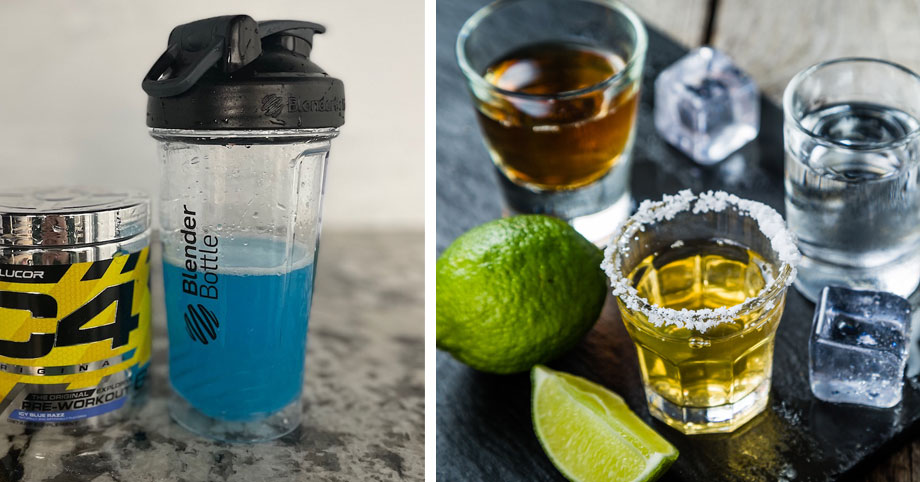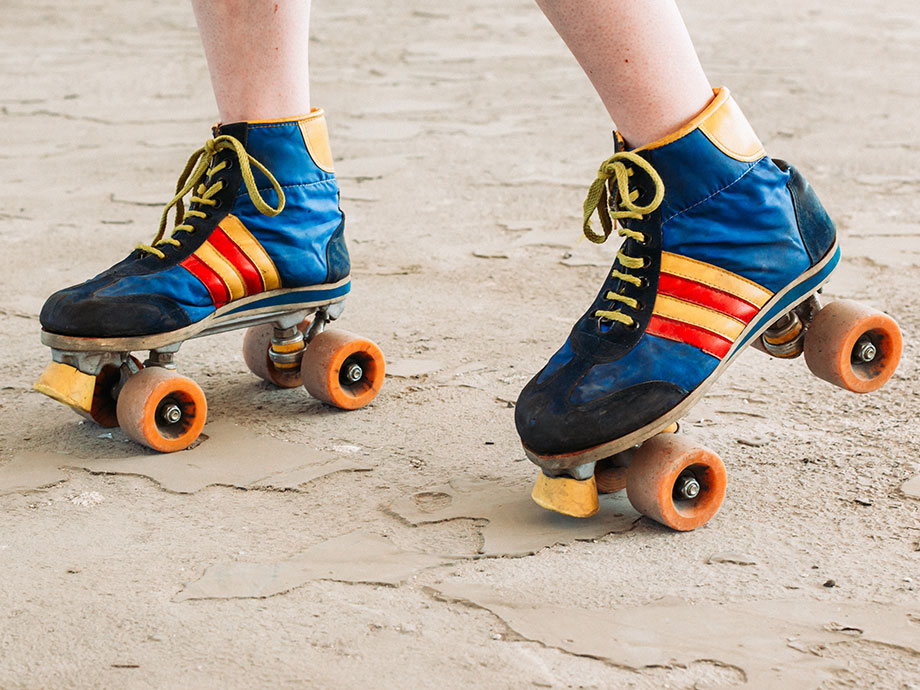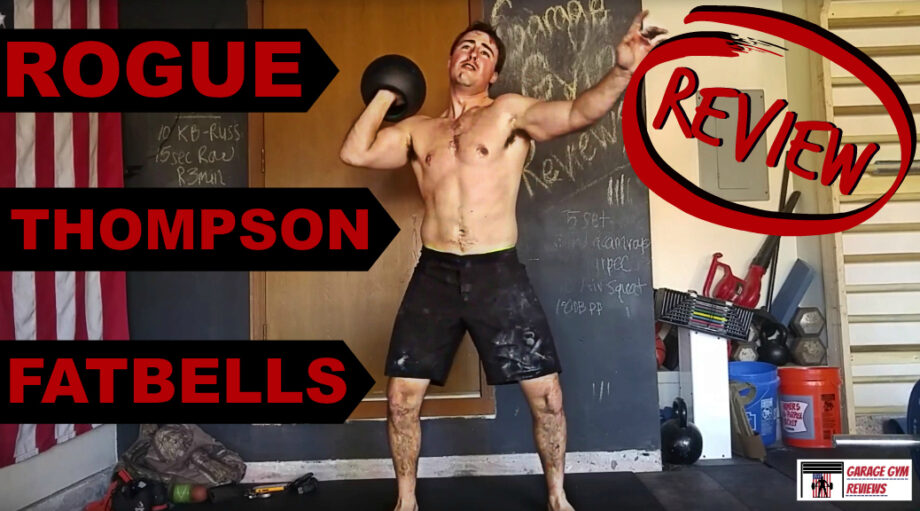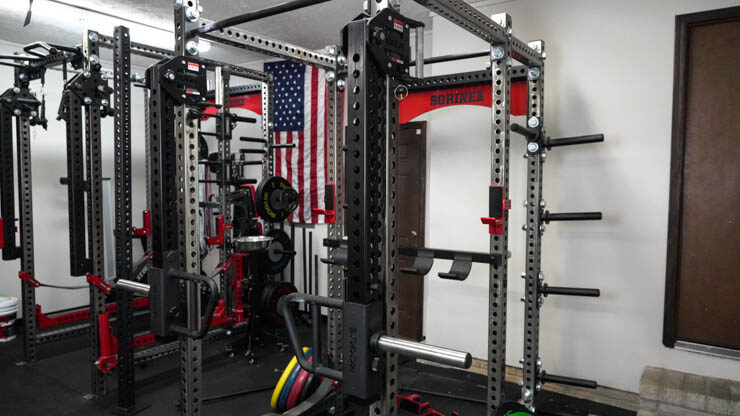The best pre-workouts are designed to give you a boost in energy, sharpen your mental focus, and kick your athletic performance up to the next level. They can certainly be a valuable tool in reaching your fitness goals. But when alcohol enters the picture, things can get a little messy.
Alcohol acts as a depressant and can interfere with your pre-workout in a variety of ways. It messes with your judgment and slows down many bodily functions, not just holding you back from reaching your goals but also putting you at an increased risk of injury.
RELATED: Fitness Tips to Crush Your Goals
In this article, we’ll dive into the effects of both pre-workout and alcohol and shed light on the potential health risks that come with mixing the two. We’ll cover much of what you need to know to enjoy both safely and maximize your training.
Medical disclaimer: This article is intended for educational and informational purposes only. It is not intended as a substitute for medical advice. For health advice, contact a licensed healthcare provider.
Effects of Pre-Workout
Pre-workout supplements have become a staple for many athletes who want to step up their training. Just as their name suggests, pre-workouts are taken before exercise to boost energy levels, improve strength, increase endurance, and enhance your focus.
Pre-workout side effects may include:
- Jitters1
- A tingling sensation (due to beta-alanine2)
- Heart palpitations1
- Digestive problems (due to the presence of artificial sweeteners/sugar alcohols3)
- Headaches (especially if pre-workout contains citrulline4)
- Trouble sleeping or insomnia1
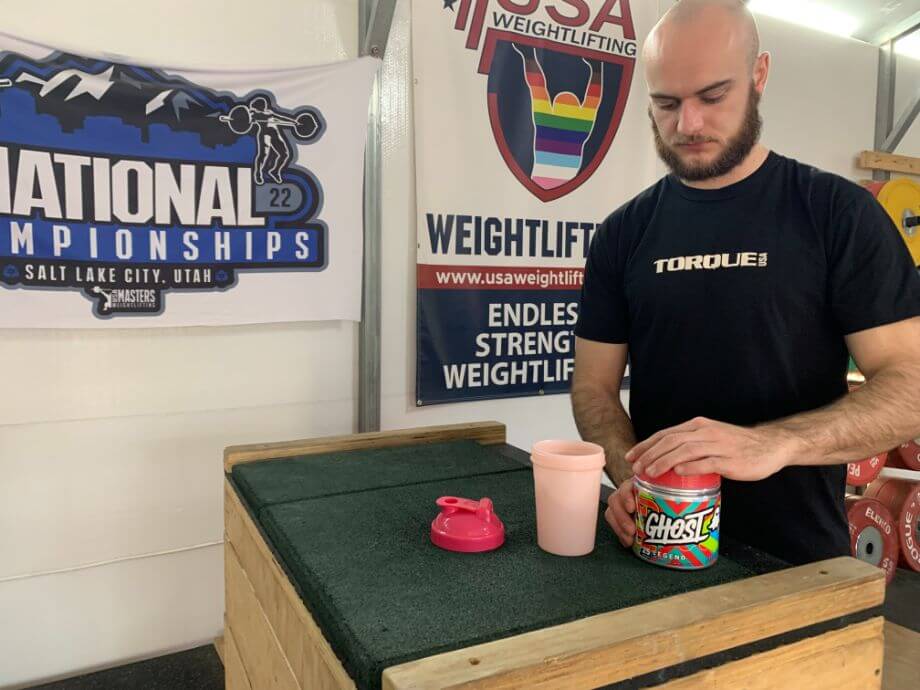
Common Pre-Workout Ingredients
While ingredients may vary by brand, the best pre-workout ingredients (i.e. those that you should expect to find in your average pre-workout) are:
- Caffeine: Caffeine is a stimulant1 used in many pre-workout supplements. It activates the central nervous system, which helps increase your energy and focus and improve your physical performance.
- Glucose: Glucose is a carbohydrate, the human body’s primary energy source. Since our bodies rely on carbohydrates for energy during our workouts, it’s essential that we consume easily digested carbs before physical activity.
- Electrolytes: Electrolytes play a critical role in many biological processes, including muscle function and hydration. We lose electrolytes through sweat, so many pre-workouts include the minerals in their formulas to help maintain our stores.
- Amino acids: Many pre-workout supplements contain a blend of amino acids5 formulated to improve blood flow, reduce muscle fatigue, and improve exercise performance. These amino acids may include citrulline, beta-alanine, and leucine, among other branched-chain amino acids (BCAAs).
- Creatine: In addition to other amino acids, some pre-workout formulas include creatine monohydrate, specifically. Creatine can be created in the liver, kidneys, and pancreas and is found in many animal foods. In addition, the amino acid has been shown to enhance physical performance,6 especially during high-intensity, short-duration workouts like powerlifting.
RELATED: Best Creatine
Effects of Alcohol

Alcohol can have short-term and long-term effects7 on the body. While you may not feel its effects right away, its impact starts when you take the first sip of your alcoholic beverage.
Short-term effects of alcohol consumption include:
- Feelings of drowsiness or relaxation
- A sense of euphoria
- Mood changes
- Reduced inhibitions
- Loss of coordination
- Difficulty focusing on tasks
- Slurred speech
- Nausea, vomiting, and diarrhea
- Dehydration
- Headaches
- Changes in vision, hearing, and perception
- Lower oxygen saturation8
Long-term effects of consistent alcohol intake include:
- Persistent changes in mood, resulting in anxiety, irritability, etc.
- Poor sleep patterns
- Changes in appetite, food intake, and weight
- Trouble focusing on tasks
- A weakened immune system
Pre-Workout and Alcohol: Do They Mix?
To keep it simple—mixing pre-workout supplements with alcohol is not a great idea. But let’s break it down and find out why.
Pre-workout supplements are all about giving you that extra boost before you hit the gym. They typically include ingredients like caffeine to amp up your energy and focus. Alcohol, on the other hand, acts as a depressant that can slow down your system and mess with your brain and body coordination. So, when you mix the two, you’re throwing conflicting signals at your body and negating any potential benefits that your pre-workout may offer.
RELATED: Best Natural Pre-Workout
Mixing your pre-workout with alcohol can also impair your decision-making skills and reaction time, increasing your risk of injury. Furthermore, you may experience electrolyte imbalances, leading to dehydration, muscle cramping, low blood pressure, and reduced muscle recovery.
RELATED: Best Muscle Recovery Supplements
Bottom line: Both myself (a registered dietitian nutritionist) and Bob Iafelice, P.h.D (registered dietitian, supplement expert, and GGR nutrition consultant) agree you should skip the mix and enjoy them separately and safely for better results.
Side Effects of Mixing Pre-Workout and Alcohol
Mixing your pre-workout supplement with alcohol can cause significant side effects. Pre-workout drinks often contain stimulants like caffeine and other ingredients that increase your heart rate and blood flow to boost your energy and enhance your athletic performance.
On the flip side, alcohol is a depressant that brings contrasting effects. The Centers for Disease Control and Prevention9 caution against mixing caffeine and alcohol as caffeine can mask the effects of alcohol, giving you a distorted feeling of alertness.
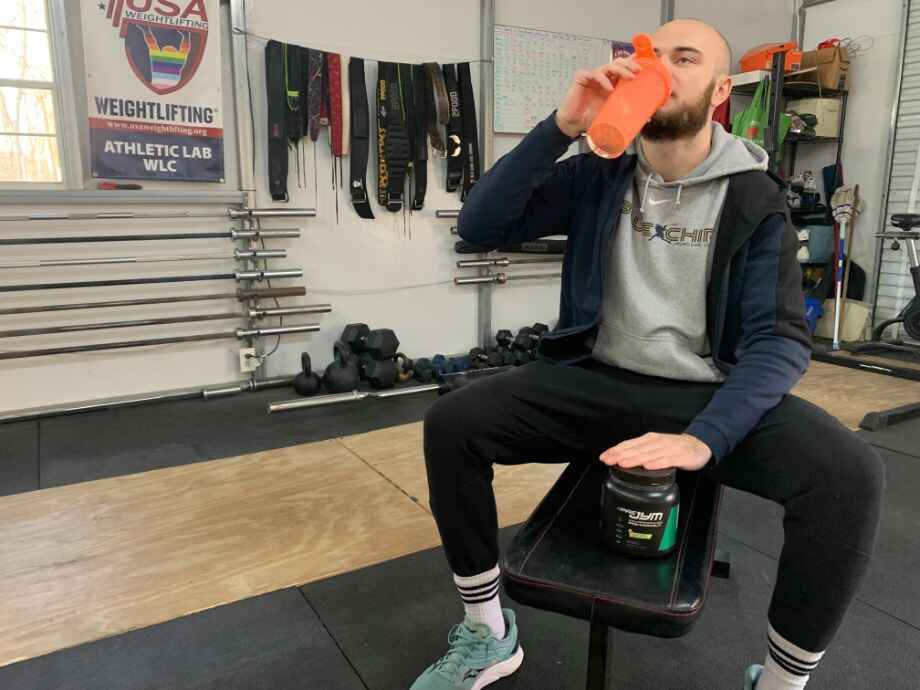
Drinking alcohol with your pre-workout supplement can also lead to the following:
- Heightened stress on the cardiovascular system
- Changes in heart rate or blood pressure
- Dehydration
- Fatigue and dizziness
- Impaired cognitive function
- Poor reaction time, coordination, and balance
- Reduced physical performance
- Increased risk of injury
Additionally, alcohol consumption after your workout may negatively affect the muscle protein synthesis10 needed for muscle recovery and growth. While it’s possible to enjoy a pre-workout supplement and an alcoholic beverage separately and safely, it’s best to allow some time between them. Ideally, allowing your body to recover before pouring your favorite cocktail is best.
Unfortunately, there isn’t a ton of scientific research out there regarding the best amount of time to wait before pouring a drink after your training. However, many experts suggest waiting at least one hour after your workout, and always make sure you rehydrate with water—after your workout but before you consume alcohol.
RELATED: Best Sports Drinks
Your certified personal trainer, registered dietitian, or doctor can help you make informed decisions based on your medical history and wellness goals.
Pre-Workout and Alcohol: Final Thoughts
While pre-workout supplements and alcohol can be enjoyed independently of each other, safely in moderation, they should not be consumed together. Mixing pre-workout supplements with alcohol can have dangerous effects on your workout and overall health. Since the two drinks offer distinct side effects, each contrary to the other, it’s best to enjoy them separately.
Pre-workout supplements are formulated to increase your energy, while alcohol acts as a downer. It slows many of your systems and can impair your workout, putting you and others at risk for serious injury.
If you have questions about the effects that alcohol and pre-workout drinks have on your fitness goals, consider meeting with your doctor or registered dietitian.
- Pre-workout supplements are formulated to boost your energy and sharpen your focus before training.
- Many pre-workouts contain stimulants like caffeine.
- Alcoholic beverages can cause contrasting effects when compared to pre-workout supplements.
- Alcohol can slow your reaction time, affect your coordination, and put you at risk for injury during exercise.
- Mixing pre-workouts with alcohol can also cause dehydration and affect muscle growth and recovery.
Pre-Workout and Alcohol: FAQs
Can you drink alcohol and take pre-workout?
Technically, yes. But should you? No, it’s not ideal. Drinking alcohol while taking a pre-workout supplement may have dangerous effects on your health and negate the potential benefits of your pre-workout routine.
How long after pre-workout can I drink alcohol?
There is definitely a need for more research concerning the timing of alcohol consumption after taking a pre-workout supplement. However, many experts suggest waiting at least one hour after your workout before pouring an alcoholic beverage.
Is it bad to mix caffeine and alcohol?
The CDC cautions against mixing caffeine and alcohol, as caffeine can mask the depressant effects of alcohol. This can make you feel more alert than you would without caffeine and put you at risk for health complications or injury.
What happens if you drink alcohol before working out?
Drinking alcohol before your workout can impair your judgment and increase your risk of injury. Even a tiny amount of alcohol can affect your coordination and spatial awareness. Alcohol is also a diuretic and depressant, which can increase your risk for dehydration and slow you down. Your reaction time, aerobic capacity, strength, and endurance will likely suffer after just one drink of alcohol.
These statements have not been evaluated by the Food and Drug Administration. This product is not intended to diagnose, treat, cure, or prevent any diseases.
References
- Guest, N. S., VanDusseldorp, T. A., Nelson, M. T., Grgic, J., Schoenfeld, B. J., Jenkins, N. D. M., Arent, S. M., Antonio, J., Stout, J. R., Trexler, E. T., Smith-Ryan, A. E., Goldstein, E. R., Kalman, D. S., & Campbell, B. I. (2021). International society of sports nutrition position stand: caffeine and exercise performance. Journal of the International Society of Sports Nutrition, 18(1), 1. https://doi.org/10.1186/s12970-020-00383-4
- Trexler ET, Smith-Ryan AE, Stout JR, Hoffman JR, Wilborn CD, Sale C, Kreider RB, Jäger R, Earnest CP, Bannock L, Campbell B, Kalman D, Ziegenfuss TN, Antonio J. International society of sports nutrition position stand: Beta-Alanine. J Int Soc Sports Nutr. 2015 Jul 15;12:30. doi: 10.1186/s12970-015-0090-y. PMID: 26175657; PMCID: PMC4501114.
- Mäkinen KK. Gastrointestinal Disturbances Associated with the Consumption of Sugar Alcohols with Special Consideration of Xylitol: Scientific Review and Instructions for Dentists and Other Health-Care Professionals. Int J Dent. 2016;2016:5967907. doi: 10.1155/2016/5967907. Epub 2016 Oct 20. PMID: 27840639; PMCID: PMC5093271.
- Pradhan AA, Bertels Z, Akerman S. Targeted Nitric Oxide Synthase Inhibitors for Migraine. Neurotherapeutics. 2018 Apr;15(2):391-401. doi: 10.1007/s13311-018-0614-7. PMID: 29516436; PMCID: PMC5935643.
- Jäger, R., Kerksick, C. M., Campbell, B. I., Cribb, P. J., Wells, S. D., Skwiat, T. M., Purpura, M., Ziegenfuss, T. N., Ferrando, A. A., Arent, S. M., Smith-Ryan, A. E., Stout, J. R., Arciero, P. J., Ormsbee, M. J., Taylor, L. W., Wilborn, C. D., Kalman, D. S., Kreider, R. B., Willoughby, D. S., Hoffman, J. R., … Antonio, J. (2017). International Society of Sports Nutrition Position Stand: protein and exercise. Journal of the International Society of Sports Nutrition, 14, 20. https://doi.org/10.1186/s12970-017-0177-8
- Wax, B., Kerksick, C. M., Jagim, A. R., Mayo, J. J., Lyons, B. C., & Kreider, R. B. (2021). Creatine for Exercise and Sports Performance, with Recovery Considerations for Healthy Populations. Nutrients, 13(6), 1915. https://doi.org/10.3390/nu13061915
- Centers for Disease Control and Prevention. (2022a, April 14). Drinking Too Much Alcohol Can Harm Your Health. Learn the Facts. Centers for Disease Control and Prevention. https://www.cdc.gov/alcohol/fact-sheets/alcohol-use.htm
- Van de Borne, P., Mark, A. L., Montano, N., Mion, D., & Somers, V. K. (1997). Effects of alcohol on sympathetic activity, hemodynamics, and Chemoreflex sensitivity. Hypertension, 29(6), 1278–1283. https://doi.org/10.1161/01.hyp.29.6.1278
- Centers for Disease Control and Prevention. (2022, December 7). Dangers of Mixing Alcohol With Caffeine and Energy Drinks. Centers for Disease Control and Prevention. https://www.cdc.gov/alcohol/fact-sheets/caffeine-and-alcohol.htm#:~:text=The%202015%E2%80%932020%20Dietary%20Guidelines,against%20mixing%20alcohol%20with%20caffeine.&text=When%20alcohol%20is%20mixed%20with,alert%20than%20they%20would%20otherwise.
- Lakićević N. (2019). The Effects of Alcohol Consumption on Recovery Following Resistance Exercise: A Systematic Review. Journal of functional morphology and kinesiology, 4(3), 41. https://doi.org/10.3390/jfmk4030041


